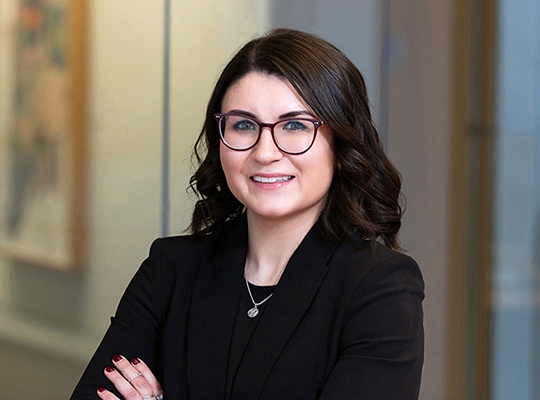Key Takeaways
- Treasury issued a final rule requiring certain investment advisers to establish an AML/CFT Program and file certain reports, such as Suspicious Activity Reports (SARs), with FinCEN (Final Rule).
- The Final Rule applies to registered investment advisers (RIAs) and exempt reporting advisers, but excludes certain RIAs from its scope.
- The compliance date for the Final Rule has been extended to January 1, 2026, but covered investment advisers should start making preparations now even if they already maintain some form of a voluntary AML/CFT Program.
On August 28, 2024, the U.S. Department of Treasury’s (Treasury) Financial Crimes Enforcement Network (FinCEN) issued a final rule (Final Rule) requiring certain investment advisers to establish an anti-money laundering/counter-terrorism financing program (AML/CFT Program) pursuant to the Bank Secrecy Act (BSA).1 U.S. Secretary of the Treasury Janet L. Yellen stated that the Final Rule will “close critical loopholes in the U.S. financial system that bad actors use to facilitate serious crimes like corruption, narcotrafficking, and fraud.”
FinCEN issued a notice of proposed rulemaking on February 13, 2024 (Proposed Rule) and accepted public comments through April 15, 2024. Additional information regarding the Proposed Rule can be found in our Dechert OnPoint. The Final Rule largely adopts the requirements of the Proposed Rule, with a few key differences, as described below.
1. Final Rule Requirements
a. AML/CFT Program Requirement
The Final Rule requires certain registered investment advisers (RIAs) and exempt reporting advisers (ERAs) (together with RIAs, Investment Advisers) to adopt a reasonably designed, risk-based AML/CFT Program to combat the laundering of money and financing of terrorism through the institution, as required by the BSA.
The AML/CFT Program must, at a minimum:
- Establish and implement internal policies, procedures and controls reasonably designed to prevent the adviser from being used for money laundering, terrorist financing and other illicit finance activities and to comply with applicable provisions of the BSA and implementing regulations.
- Provide for independent testing of the AML/CFT Program by the adviser’s personnel or a qualified outside party.
- Designate a person or persons to be responsible for implementing and monitoring the internal policies, procedures and controls of the AML/CFT Program.
- Provide for ongoing training of appropriate persons.
- Implement appropriate risk-based procedures for conducting ongoing customer due diligence (CDD) that includes:
- Understanding the nature and purpose of customer relationships for the purpose of developing a customer risk profile.
- Conducting ongoing monitoring to identify and report suspicious transactions and, on a risk basis, to maintain and update customer information.
The AML/CFT Program must be approved in writing by the Investment Adviser’s board of directors or trustees, or if it does not have a board, by its sole proprietor, general partner, trustee or other persons that have functions similar to a board of directors and are able to approve the AML/CFT Program. The Final Rule also allows Investment Advisers to delegate the implementation and operation of some or all aspects of their AML/CFT Programs to a third party, such as a fund administrator, if certain criteria are met. The Investment Adviser still, however, would remain fully responsible and legally liable for compliance with the requirements of the Final Rule.
b. Reports of Suspicious Transactions
The Final Rule requires Investment Advisers to file Suspicious Activity Reports (SARs) with FinCEN for a transaction that involves or aggregates at least $5,000 in funds or other assets, if it knows, suspects or has reason to suspect that the transaction meets any of the following criteria:
- The transaction involves funds derived from illegal activity or is intended or conducted to hide or disguise funds or assets derived from illegal activity.
- The transaction is designed, whether through structuring or other means, to evade the requirements of the BSA.
- The transaction has no business or apparent lawful purpose, and the Investment Adviser knows of no reasonable explanation for the transaction after examining the available facts.
- The transaction involves the use of the Investment Adviser to facilitate criminal activity.
The Final Rule requires Investment Advisers to maintain records of SARs filed.
c. Other Requirements
In addition, certain other filing and recordkeeping rules are applicable to Investment Advisers under the Final Rule. For example, Investment Advisers are required to comply with the requirements of the Recordkeeping and Travel Rules, which require financial institutions to create and retain records for transmittals of funds that equal or exceed $3,000 and to ensure that certain information pertaining to the transmittal of funds “travels” with the transmittal to the next financial institution in the payment chain.
Additionally, Investment Advisers are required to file Currency Transaction Reports (rather than filing on joint FinCEN/Internal Revenue Service Form 8300, as they do currently), upon the receipt of more than $10,000 in currency and certain negotiable instruments. Investment Advisers are also subject to the information-sharing provisions of the BSA and “special measures” imposed by FinCEN pursuant to Section 311 of the USA PATRIOT Act. The Final Rule clarifies that, with respect to such “special measures,” Investment Advisers may deem the AML/CFT Program requirements satisfied for any mutual fund, bank- and trust company-sponsored collective investment fund or any other investment adviser they advise subject to the Final Rule that is already subject to AML/CFT Program requirements.
2. Differences from Proposed Rule Requirements
a. Scope of the Final Rule
The Final Rule adopts a narrower definition of “investment adviser” than the Proposed Rule, excluding (1) RIAs that register with the SEC solely because they are (a) mid-sized advisers, (b) multi-state advisers, or (c) pension consultants; and (2) RIAs that are not required to report any assets under management to the SEC on Form ADV.
The Final Rule also addressed comments regarding applicability of the Proposed Rule to RIAs or ERAs that have a principal office and place of business outside the United States (foreign-located investment advisers). The Final Rule applies solely to foreign-located investment advisers’ advisory activities that (i) take place within the United States (including through the adviser’s U.S. personnel) or (ii) provide advisory services to a U.S. person or a foreign-located private fund with an investor that is a U.S. person.
b. Duty Provision
In the Final Rule, FinCEN removed the Proposed Rule’s provision requiring that the duty to establish, maintain and enforce an adviser’s AML/CFT Program fall within the responsibility of and be performed by persons in the United States who are accessible to and subject to oversight and supervision of the Secretary of the Treasury and the relevant federal regulator.
c. Extended Compliance Date
The Proposed Rule contained a compliance deadline of 12 months after the effective date of the regulation. FinCEN extended the compliance date in the Final Rule to January 1, 2026.
3. Customer Identification Program (CIP) Proposed Rule
In a separate effort to address money laundering and counter-terrorism financing concerns, on May 13, 2024, FinCEN and the SEC jointly proposed a new rule that would require certain RIAs and ERAs to establish, document and maintain written CIPs (CIP Proposed Rule).2 The comment period for the CIP Proposed Rule closed on July 22, 2024. Additional information regarding the CIP Proposed Rule can be found in our Dechert OnPoint.
4. Conclusion
The Final Rule represents the culmination of a two-decade long effort to apply AML obligations to investment advisers. Investment Advisers subject to the Final Rule should begin to calibrate existing programs or implement new programs to comply with the Final Rule. Dechert can assist investment advisers and other advisers with aligning existing programs or devising new programs and in assessing the scope of the Final Rule.
Footnotes
- See Anti-Money Laundering/Countering the Financing of Terrorism Program and Suspicious Activity Report Filing Requirements for Registered Investment Advisers and Exempt Reporting Advisers (September 4, 2024).
- See Customer Identification Programs for Registered Investment Advisers and Exempt Reporting Advisers (May 21, 2024).







